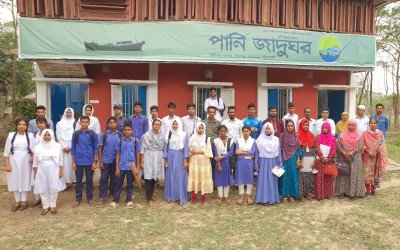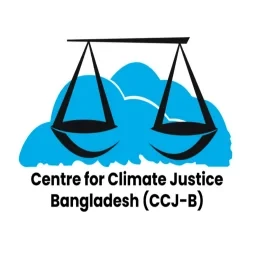
A training program was facilitated by Centre for Climate Justice–Bangladesh (CCJ-B) and organized by ActionAid Bangladesh (AAB) in two of the most climate-vulnerable districts in Bangladesh – Satkhira and Patuakhali. ActionAid Bangladesh initiated this training program aimed at equipping school students and local youth with essential knowledge and practical skills to address climate challenges in their communities. As part of this initiative, the Centre for Climate Justice–Bangladesh (CCJ-B) developed a training module designed to introduce core concepts of climate change, its impacts, community vulnerabilities, and strategies for adaptation and mitigation. The module was carefully crafted to be interactive and accessible, incorporating group activities and discussion-based learning. It was translated into Bangla to ensure broader understanding and ownership among participants. The module underwent thorough review processes, both by ActionAid Bangladesh and CCJ-B's internal team, to ensure its quality and relevance. The training was delivered in two separate events. The first was held from 18 to 20 February 2025 at the Water Museum in Pakhimara Bazar, Kalapara, Patuakhali. Participants included 20 students from two local schools—Pakhimara Prafulla Bhowmik Secondary School and Khepupara Government Model Secondary School—accompanied by four teachers. In addition, a female Union Parishad member and several local youths from various organizations participated, reflecting a diverse and inclusive group of learners. The second training session took place from 20 to 22 May 2025 at Shyamnagar Public Library in Satkhira. This session engaged 30 participants from different youth groups in the region. Through presentations, group discussions, and participatory exercises, the young participants explored the ongoing climate issues and learned how they can contribute to local resilience-building efforts.
